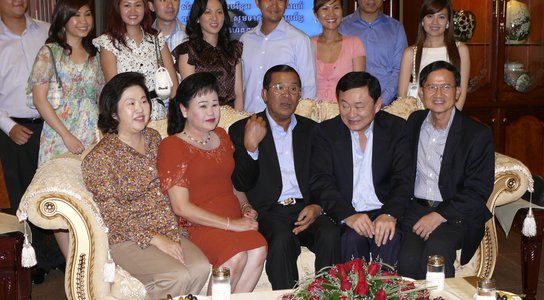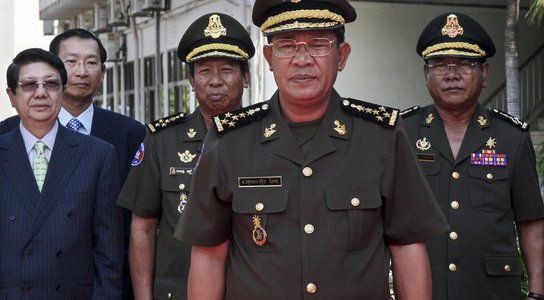My first glimpse of the Phnom Penh Post was whilst waiting at a bus stop on a rainy evening on London’s Rosebery Avenue in 1993; a fellow passenger, a researcher for Amnesty International as it turned out, was reading it. In our spare time two friends and I were exploring the idea of investigating the timber trade between the infamous Khmer Rouge rebels and logging companies in Thailand, which we believed was providing essential funding fuelling the civil war in Cambodia. We knew little about Cambodia and were doing all the research our day jobs would allow; and there, on my way home, was someone reading the Phnom Penh Post - its iconic title and font transporting me thousands of miles away from that busy London street, to a country I hadn’t yet visited.
Over the next few years my two friends and I co-founded Global Witness, initially to carry out those investigations into the Khmer Rouge, and then to probe the endemic corruption that we had stumbled on which, even then, was rotting the heart out of that newly democratic country. The Phnom Penh Post, together with the Cambodia Daily and other independent media organisations were essential partners in this work. Their high quality journalism and fearless dedication to reporting the truth brought these stories in front of an international audience.
On 5th April 1996 the Phnom Penh Post’s banner headline ran ‘PMs sign million metre timber deals with Thais’. Matthew Grainger’s article told how we had been leaked a series of letters sent to Thailand’s Deputy Prime Minister, General Chavalit, from Cambodia’s joint Prime-Ministers, Norodom Ranariddh and – you guessed it - Hun Sen, authorising the export from Khmer Rouge territory of 1.1 million cubic metre of logs. This huge deal, had we not disrupted it, could have earned the Cambodian government around $35 million; more strikingly it would have earned their battlefield enemy, the Khmer Rouge a staggering $95 million.
However, the $35 million the government could have earned turned out to be off-budget. Perhaps only the two signatories of those letters, Hun Sen being one of them, knew where that money would end up. The IMF withdrew its support for Cambodia as a result, and the Post played a massive role in that.
From those early days right up until now the Post held those in public life to account. Like other independent Cambodian media organisations it was absolutely vital in helping to build the nascent democracy that followed decades of bloody civil war and genocide. But now the Post has joined a host of honourable names, like Radio Free Asia and the Cambodia Daily, not to mention the main opposition party, in either being closed down or neutralised. That is their tragedy and their badge of honour.
Like many of the dictatorial actions that Hun Sen takes, the neutralising of the Post was dressed up as something else: tax arrears and a corporate takeover. This is about as plausible as Hun Sen’s promise to cut off his own head if he didn’t banish illegal logging in Cambodia. Illegal logging continues to thrive and has largely destroyed Cambodia’s forests, impoverished its people, and provided the seed money to create a vastly wealthy family-based kleptocracy, of which Hun Sen, still in possession of his head, is the head.
The Post’s new owner, Sivakumar Ganapathy, promptly fired the Post’s editor Kay Kimsong, giving little confidence in his assurance of ensuring editorial independence. His own company boasts of its past work with both the governments of Sarawak and Cambodia, neither of which have been champions of press freedom, and also have in common a pattern of autocratic leadership, corruption and a propensity for trashing tropical rainforests.
However, the light at the end of the tunnel lies in Cambodia’s brave, disenchanted and tech-savvy younger generation who are proving adept at getting their message out there via social media. Hun Sen is already aiming at that through the cybercrime law and aggressive defamation actions, but with national elections looming in July, perhaps he has now bitten off more than he can chew.
So thank you to the Phnom Penh Post and all our friends there, past and present. You made a real difference.

